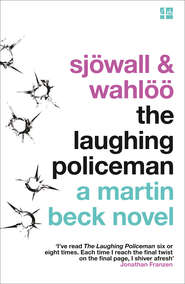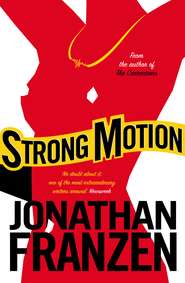По всем вопросам обращайтесь на: info@litportal.ru
(©) 2003-2024.
✖
Freedom
Настройки чтения
Размер шрифта
Высота строк
Поля
“Theft of her cub—the ultimate crime,” Seth said.
“Theft, exactly,” Merrie said. “Poor innocent blameless Joey, stolen away by that little intellectual powerhouse next door.”
“Well, she is a year and a half older.”
“Calendrically.”
“Say what you will,” Seth said, “but Patty really loved Walter’s mom. She’s got to be hurting.”
“Oh, I know, I know. Seth, I know. And now I can honestly be sad for her.”
Neighbors who were closer to the Berglunds than the Paulsens reported that Miss Bianca had left her little mouse house, on a minor lake near Grand Rapids, exclusively to Walter and not to his two brothers. There was said to be disagreement between Walter and Patty about how to handle this, Walter wanting to sell the house and share the proceeds with his brothers, Patty insisting that he honor his mother’s wish to reward him for being the good son. The younger brother was career military and lived in the Mojave, at the Air Force base there, while the older brother had spent his adult life advancing their father’s program of drinking immoderately, exploiting their mother financially, and otherwise neglecting her. Walter and Patty had always taken the kids to his mother’s for a week or two in the summer, often bringing along one or two of Jessica’s neighborhood friends, who described the property as rustic and woodsy and not too terrible bugwise. As a kindness, perhaps, to Patty, who appeared to be doing some immoderate drinking of her own—her complexion in the morning, when she came out to collect the blue-wrappered New York Times and the green-wrappered Star-Tribune from her front walk, was all Chardonnay Splotch—Walter eventually agreed to keep the house as a vacation place, and in June, as soon as school let out, Patty took Joey up north to help her empty drawers and clean and repaint while Jessica stayed home with Walter and took an enrichment class in poetry.
Several neighbors, the Paulsens not among them, brought their boys for visits to the lakeside house that summer. They found Patty in much better spirits. One father privately invited Seth Paulsen to imagine her suntanned and barefoot, in a black one-piece bathing suit and beltless jeans, a look very much to Seth’s taste. Publicly, everyone remarked on how attentive and unsullen Joey was, and what a good time he and Patty seemed to be having. The two of them made all visitors join them in a complicated parlor game they called Associations. Patty stayed up late in front of her mother-in-law’s TV console, amusing Joey with her intricate knowledge of syndicated sixties and seventies sitcoms. Joey, having discovered that their lake was unidentified on local maps—it was really just a large pond, with one other house on it—had christened it Nameless, and Patty pronounced the name tenderly, sentimentally, “our Nameless Lake.” When Seth Paulsen learned from one of the returning fathers that Joey was working long hours up there, cleaning gutters and cutting brush and scraping paint, he wondered whether Patty might be paying Joey a solid wage for his services, whether this might be part of the deal. But nobody could say.
As for Connie, the Paulsens could hardly look out a Monaghan-side window without seeing her waiting. She really was a very patient girl, she had the metabolism of a fish in winter. She worked evenings busing tables at W. A. Frost, but all afternoon on weekdays she sat waiting on her front stoop while ice-cream trucks went by and younger children played, and on weekends she sat in a lawn chair behind the house, glancing occasionally at the loud, violent, haphazard tree-removal and construction work that her mother’s new boyfriend, Blake, had undertaken with his non-unionized buddies from the building trades, but mostly just waiting.
“So, Connie, what’s interesting in your life these days?” Seth asked her from the alley.
“You mean, apart from Blake?”
“Yes, apart from Blake.”
Connie considered briefly and then shook her head. “Nothing,” she said.
“Are you bored?”
“Not really.”
“Going to movies? Reading books?”
Connie fixed Seth with her steady, we-have-nothing-in-common gaze. “I saw Batman.”
“What about Joey? You guys have been pretty tight, I bet you’re missing him.”
“He’ll be back,” she said.
Once the old cigarette-butt issue had been resolved—Seth and Merrie admitted to having possibly exaggerated the summerlong tally of butts in the wading pool; to having possibly overreacted—they’d discovered in Carol Monaghan a rich source of lore about local Democratic politics, which Merrie was getting more involved with. Carol matter-of-factly told hair-raising stories of the unclean machine, of buried pipelines of slush, of rigged bids, of permeable firewalls, of interesting math, and got a kick out of Merrie’s horror. Merrie came to cherish Carol as a fleshly exemplum of the civic corruption Merrie intended to combat. The great thing about Carol was that she never seemed to change—kept tarting up on Thursday evenings for whoever, year after year after year, keeping alive the patriarchal tradition in urban politics.
And then, one day, she did change. There was already quite a bit of this going around. The city’s mayor, Norm Coleman, had morphed into a Republican, and a former pro wrestler was headed toward the governor’s mansion. The catalyst in Carol’s case was the new boyfriend, Blake, a goateed young backhoe operator she’d met across the counter at the license bureau, and for whom she dramatically changed her look. Out went the complicated hair and escort-service dresses, in came snug pants, a simple shag cut, and less makeup. A Carol nobody had ever seen, an actually happy Carol, hopped buoyantly from Blake’s F-250 pickup, letting anthem rock throb up and down the street, and slammed the passenger-side door with a mighty push. Soon Blake began spending nights at her house, shuffling around in a Vikings jersey with his work boots unlaced and a beer can in his fist, and before long he was chainsawing every tree in her back yard and running wild with a rented backhoe. On the bumper of his truck were the words I’M WHITE AND I VOTE.
The Paulsens, having recently completed a protracted renovation of their own, were reluctant to complain about the noise and mess, and Walter, on the other side, was too nice or too busy, but when Patty finally came home, late in August, after her months in the country with Joey, she was practically unhinged in her dismay, going up and down the street, door to door, wild-eyed, to vilify Carol Monaghan. “Excuse me,” she said, “what happened here? Can somebody tell me what happened? Did somebody declare war on trees without telling me? Who is this Paul Bunyan with the truck? What’s the story? Is she not renting anymore? Are you allowed to annihilate the trees if you’re just renting? How can you tear the back wall off a house you don’t even own? Did she somehow buy the place without our knowing it? How could she do that? She can’t even change a lightbulb without calling up my husband! ‘Sorry to bother you at the dinner hour, Walter, but when I flip this light switch nothing happens. Do you mind coming over right away? And while you’re here, hon, can you help me with my taxes? They’re due tomorrow and my nails are wet.’ How could this person get a mortgage? Doesn’t she have Victoria’s Secret bills to pay? How is she even allowed to have a boyfriend? Isn’t there some fat guy over in Minneapolis? Shouldn’t somebody maybe get the word out to the fat guy?”
Not until Patty reached the door of the Paulsens, far down on her list of go-to neighbors, did she get some answers. Merrie explained that Carol Monaghan was, in fact, no longer renting. Carol’s house had been one of several hundred that the city housing authority had come to own during the blight years and was now selling off at bargain prices.
“How did I not know this?” Patty said.
“You never asked,” Merrie said. And couldn’t resist adding: “You never seemed particularly interested in government.”
“And you say she got it cheap.”
“Very cheap. It helps to know the right people.”
“How do you feel about that?”
“I think it sucks, both fiscally and philosophically,” Merrie said. “That’s one reason I’m working with Jim Schiebel.”
“You know, I always loved this neighborhood,” Patty said. “I loved living here, even at the beginning. And now suddenly everything looks so dirty and ugly to me.”
“Don’t get depressed, get involved,” Merrie said, and gave her some literature.
“I wouldn’t want to be Walter right now,” Seth remarked as soon as Patty was gone.
“I’m frankly glad to hear that,” Merrie said.
“Was it just me, or did you hear an undertone of marital discontent? I mean, helping Carol with her taxes? You know anything about that? I thought that was very interesting. I hadn’t heard about that. And now he’s failed to protect their pretty view of Carol’s trees.”
“The whole thing is so Reaganite-regressive,” Merrie said. “She thought she could live in her own little bubble, make her own little world. Her own little dollhouse.”
The add-on structure that rose out of Carol’s back-yard mud pit, weekend by weekend over the next nine months, was like a giant utilitarian boat shed with three plain windows punctuating its expanses of vinyl siding. Carol and Blake referred to it as a “great-room,” a concept hitherto foreign to Ramsey Hill. Following the cigarette-butt controversy, the Paulsens had installed a high fence and planted a line of ornamental spruces that had since grown up enough to screen them from the spectacle. Only the Berglunds’ sight lines were unobstructed, and before long the other neighbors were avoiding conversation with Patty, as they never had before, because of her fixation on what she called “the hangar.” They waved from the street and called out hellos but were careful not to slow down and get sucked in. The consensus among the working mothers was that Patty had too much time on her hands. In the old days, she’d been great with the little kids, teaching them sports and domestic arts, but now most of the kids on the street were teenagers. No matter how she tried to fill her days, she was always within sight or earshot of the work next door. Every few hours, she emerged from her house and paced up and down her back yard, peering over at the great-room like an animal whose nest had been disturbed, and sometimes in the evening she went knocking on the great-room’s temporary plywood door.
“Hey, Blake, how’s it going?”
“Going just fine.”
“Sounds like it! Hey, you know what, that Skilsaw’s pretty loud for eight-thirty at night. How would you feel about knocking off for the day?”
“Not too good, actually.”
“Well, how about if I just ask you to stop, then?”
“I don’t know. How about you letting me get my work done?”
“I’d actually feel pretty bad about that, because the noise is really bothering us.”
“Yeah, well, you know what? Too bad.”
Patty had a loud, involuntary, whinnylike laugh. “Ha-ha-ha! Too bad?”
“Yeah, listen, I’m sorry about the noise. But Carol says there was about five years of noise coming out of your place when you were fixing it up.”
“Ha-ha-ha. I don’t remember her complaining.”
“You were doing what you had to do. Now I’m doing what I have to do.”
“What you’re doing is really ugly, though. I’m sorry, but it’s kind of hideous. Just—horrible and hideous. Honestly. As a matter of pure fact. Not that that’s really the issue. The issue is the Skilsaw.”
“You’re on private property and you need to leave now.”
















